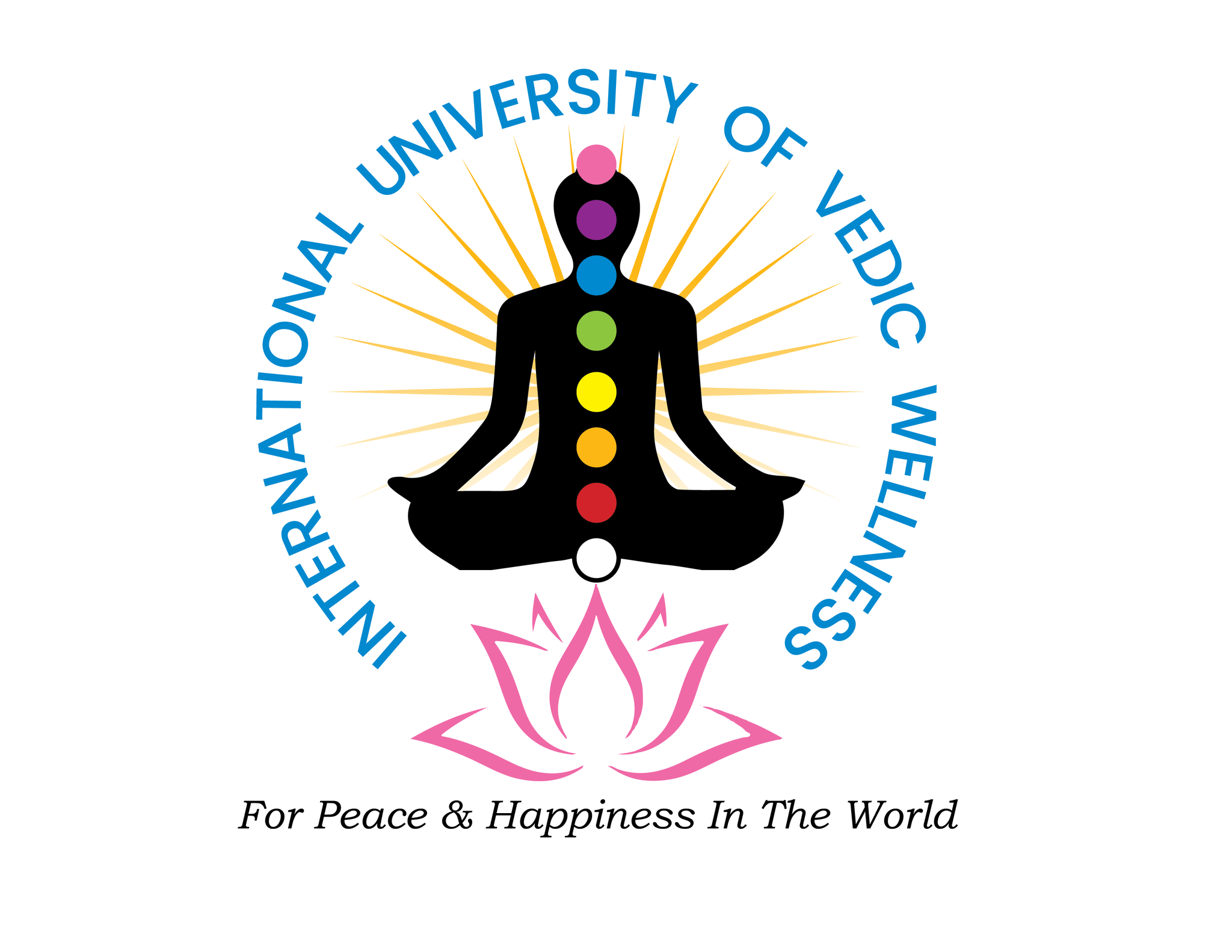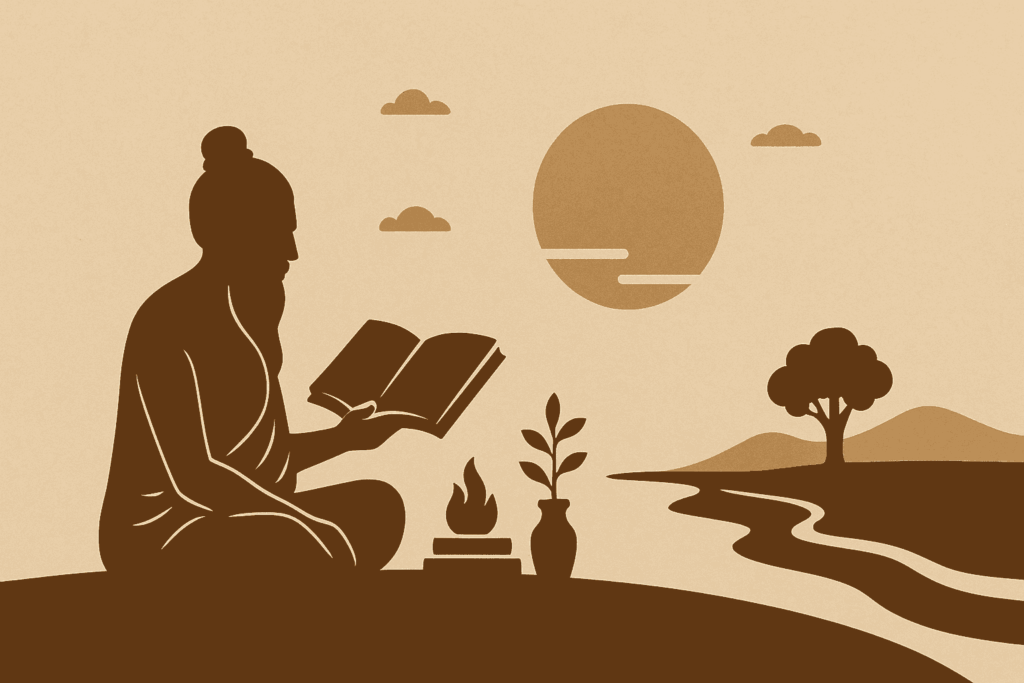The Upanishads, a collection of ancient Sanskrit texts that form the core of Indian philosophical thought, have captivated spiritual seekers for millennia with their profound wisdom and transformative insights. While composed thousands of years ago, the teachings of the Upanishads remain as relevant and applicable as ever in the context of modern life. In a world filled with constant stimulation, stress, and existential questions, the Upanishads offer a timeless path towards inner peace, self-realization, and enlightenment.
This extensive blog will dive deep into how the wisdom of the Upanishads can be practically applied to navigate the challenges and complexities of contemporary existence. Through exploring key philosophical concepts, illuminating real-life examples, and providing actionable guidance, we will uncover how these sacred texts can help us lead more fulfilling, purposeful, and peaceful lives in alignment with our highest nature.
Introduction to the Upanishads
The Upanishads, meaning ‘sitting down near’ or ‘secret teachings,’ are a collection of philosophical texts that form the foundation of Vedanta, one of the six schools of Hindu philosophy. Composed in sacred soil of India between 800 BCE and 500 BCE, the Upanishads are the culmination of the Vedas, the oldest scriptures of Hinduism. These texts are known for their profound spiritual insights, exploring the nature of reality, consciousness, and the path to liberation.
There are 108 known Upanishads, though 10-13 are considered the most important. Regarded as śruti (revealed truths) in Hinduism, the Upanishads are regarded as the ‘end of the Vedas,’ expounding upon and explaining the central themes and concepts introduced in these texts.
The Upanishads are primarily concerned with the nature of the self (atman), the ultimate reality (Brahman), and the relationship between the two. They assert that the individual self is ultimately identical with the universal Self or Brahman – the eternal, unchanging, infinite reality that underlies all of existence. This realization is seen as the key to liberation from the cycle of birth and death (samsara).
Through a combination of philosophical inquiry, meditation, and self-inquiry, the Upanishads provide guidance on how to achieve self-realization and reach enlightenment or moksha – the ultimate goal of human life according to Vedanta. The teachings emphasize the importance of transcending the ego, cultivating wisdom and detachment, and realizing one’s true nature beyond the limitations of the mind and senses.
While the Upanishads were composed thousands of years ago, their insights into the human condition, the nature of reality, and the path to inner peace remain as relevant as ever in the modern world. By studying and applying the wisdom of these texts, we can gain a deeper understanding of ourselves and the world around us, learning how to live with greater purpose, clarity, and fulfillment.
The Relevance of Upanishadic Wisdom in Modern Times
In the fast-paced, materially-focused modern world, the timeless teachings of the Upanishads offer a much-needed counterbalance and source of wisdom for navigating life’s challenges. While the external circumstances of human existence have changed dramatically since the time of the Upanishads, the fundamental questions and existential issues that we grapple with remain the same.
Questions like ‘Who am I?’, ‘What is the purpose of life?’, and ‘How can I find lasting happiness and peace?’ are as pressing today as they were thousands of years ago. The Upanishads provide profound insights and practical guidance for answering these perennial questions, offering a roadmap for self-discovery and enlightenment that is as applicable in the 21st century as it was in ancient India.
One of the key reasons for the Upanishads’ enduring relevance is their emphasis on universal principles and truths that transcend time, place, and culture. The teachings on the nature of the self, the unity of all existence, and the path to liberation are not limited to any particular religion or philosophical system, but rather speak to the common human experience and the fundamental realities of life.
In today’s world, where stress, anxiety, and existential angst are all too common, the Upanishads offer a powerful antidote and source of inner peace. By shifting our focus inward and cultivating self-knowledge, we can learn to detach from the external drama and turbulence of life, finding an unshakable sense of calm and contentment within.
Moreover, the Upanishads’ emphasis on the interconnectedness of all beings and the ultimate unity of existence is particularly relevant in an age of global challenges and divisions. By recognizing our common humanity and the fundamental oneness of all life, we can cultivate greater compassion, empathy, and cooperation, working together to create a more harmonious and sustainable world.
Ultimately, the wisdom of the Upanishads is timeless because it speaks to the deepest yearnings and highest potentials of the human spirit. By engaging with these teachings and applying them in our daily lives, we can tap into a source of inner wisdom, strength, and guidance that can help us navigate the challenges of modern existence with greater ease, purpose, and joy.
Key Concepts of the Upanishads and Their Practical Application
The Upanishads are a treasure trove of philosophical and spiritual insights, offering a rich tapestry of ideas and concepts that can profoundly transform our understanding of ourselves and the world around us. Here are some of the key concepts of the Upanishads and how they can be practically applied in modern life:
a) Atman and Brahman: The Upanishads teach that the individual self (atman) is ultimately identical with the universal Self or Brahman – the eternal, unchanging, infinite reality that underlies all of existence. By realizing this unity, we can transcend the limitations of the ego and experience a profound sense of interconnectedness and wholeness. In practical terms, this means cultivating self-inquiry, meditation, and a shift in perspective from separateness to oneness.
b) Samsara and Moksha: Samsara refers to the cycle of birth, death, and rebirth that is driven by karma and ignorance of our true nature. Moksha is the liberation from this cycle, achieved through self-realization and enlightenment. In modern life, we can work towards moksha by detaching from material pursuits, cultivating wisdom and self-awareness, and aligning our actions with our highest values and truths.
c) Karma and Dharma: Karma refers to the universal law of cause and effect, where our actions and intentions shape our future experiences. Dharma is the path of righteousness and living in alignment with cosmic order. By understanding the workings of karma and striving to live according to our dharma, we can create a more positive and fulfilling life for ourselves and others.
d) Yoga and Meditation: The Upanishads emphasize the importance of yoga and meditation as tools for self-realization and inner transformation. By practicing these disciplines regularly, we can cultivate greater self-awareness, inner peace, and clarity of mind, allowing us to navigate life’s challenges with greater ease and wisdom.
e) Detachment and Non-attachment: The Upanishads teach the importance of detachment from external outcomes and cultivating non-attachment to the fruits of our actions. By learning to act without attachment to results, we can find greater freedom, equanimity, and inner peace in the midst of life’s ups and downs.
By deeply reflecting on these key concepts and applying them in our daily lives, we can tap into the transformative wisdom of the Upanishads and experience a greater sense of purpose, fulfillment, and connection to the deeper realities of existence. Whether through formal study and practice or simply by integrating these principles into our thoughts and actions, the Upanishads offer a powerful pathway to inner growth and self-realization in the modern world.
Cultivating Inner Peace and Equanimity
In the face of life’s inevitable challenges and uncertainties, the Upanishads offer profound guidance on cultivating inner peace and equanimity. By shifting our focus inward and tapping into the eternal, unchanging reality within, we can find an unshakable sense of calm and stability amidst the chaos of the world.
One of the key teachings of the Upanishads is the importance of detachment and non-attachment. By learning to detach from external outcomes and cultivating non-attachment to the fruits of our actions, we can free ourselves from the roller coaster of emotions that often accompanies life’s ups and downs. This doesn’t mean becoming cold or uncaring, but rather developing a deep inner stability that allows us to engage with life from a place of wisdom and clarity.
The Upanishads also emphasize the practice of meditation and self-inquiry as powerful tools for cultivating inner peace. By regularly turning our attention inward and observing the workings of our mind, we can begin to disidentify from our thoughts and emotions, recognizing them as temporary phenomena rather than our true nature. Over time, this practice can help us tap into the deep well of peace and stillness that resides at the core of our being.
Another key aspect of cultivating equanimity is learning to accept and embrace the impermanence of life. The Upanishads teach that all things are constantly changing and that clinging to what is temporary is a recipe for suffering. By developing a deep acceptance of the fleeting nature of existence, we can learn to ride the waves of change with greater grace and resilience.
Ultimately, the path to inner peace and equanimity is one of surrender and letting go. By relinquishing our attachment to control and outcomes, and learning to trust in the inherent goodness and intelligence of the universe, we can find a deep sense of peace and contentment that is not dependent on external circumstances. As the Upanishads remind us, our true nature is one of pure, boundless awareness – and by resting in that awareness, we can weather any storm with grace and ease.
Overcoming Obstacles and Challenges
Life is full of obstacles and challenges, both internal and external. The Upanishads offer a wealth of wisdom and practical guidance for navigating these challenges with greater skill and resilience.
One of the key teachings of the Upanishads is the importance of cultivating a strong and steadfast mind. Like a well-trained horse, a disciplined mind can carry us through even the roughest terrain of life with grace and ease. This means developing mental clarity, focus, and determination, as well as the ability to let go of negative thought patterns and limiting beliefs.
The Upanishads also emphasize the importance of right action and living in alignment with our true nature. When we act from a place of integrity, compassion, and wisdom, we naturally create more positive outcomes and experiences in our lives. This doesn’t mean that challenges will magically disappear, but rather that we will have the inner resources and strength to meet them with greater skill and grace.
Another key teaching of the Upanishads is the power of surrendering to the divine will. By recognizing that there is an intelligence greater than our own at work in the universe, we can learn to let go of our limited ideas of control and trust in the inherent goodness of life. This doesn’t mean becoming passive or fatalistic, but rather aligning our actions with the flow of life and being open to the lessons and opportunities that challenges bring.
Ultimately, the Upanishads remind us that the greatest obstacles we face are often internal – our own negative thought patterns, limiting beliefs, and resistance to change. By turning our attention inward and working to transform these inner obstacles, we can tap into a deep wellspring of strength, resilience, and wisdom that can carry us through any challenge.
Whether it’s through the practice of meditation, self-inquiry, or simply cultivating a more positive and growth-oriented mindset, the Upanishads offer a timeless roadmap for overcoming obstacles and challenges and living a more peaceful, purposeful, and fulfilling life.
Discovering Your True Purpose
In a world that often prioritizes material success and external achievements, the Upanishads offer a refreshing perspective on what it means to live a truly purposeful and meaningful life. According to these ancient texts, our true purpose is not to accumulate wealth, status, or power, but rather to realize our innate divinity and live in alignment with our highest nature.
The Upanishads teach that each of us is a manifestation of the divine consciousness that underlies all of existence. Our ultimate purpose, then, is to awaken to this truth and live from a place of unity, love, and wisdom. This doesn’t mean renouncing the world or giving up on our earthly goals and aspirations, but rather infusing them with a deeper sense of meaning and purpose.
To discover our true purpose, the Upanishads encourage us to turn our attention inward and embark on a journey of self-discovery. This means taking the time to explore our deepest values, passions, and aspirations, and aligning our actions with what truly matters to us. It also means cultivating a regular practice of introspection and self-inquiry, using tools like meditation, journaling, and contemplation to gain greater clarity and insight into our true nature.
Another key aspect of discovering our purpose is learning to listen to the whispers of our soul. The Upanishads teach that there is a still, small voice within each of us that knows our true path and can guide us towards a life of meaning and fulfillment. By learning to quiet the noise of the mind and tune into this inner wisdom, we can begin to align our actions with our deepest truths and values.
Ultimately, the Upanishads remind us that our true purpose is not something that can be found outside of ourselves, but rather something that must be uncovered from within. By embarking on a journey of self-discovery and living in alignment with our highest nature, we can tap into a deep sense of meaning, purpose, and fulfillment that transcends the limitations of the ego and connects us to something much greater than ourselves.
Cultivating Wisdom and Self-Knowledge
The Upanishads place a great emphasis on the cultivation of wisdom and self-knowledge as essential keys to living a fulfilling and enlightened life. According to these texts, true wisdom is not merely the accumulation of intellectual knowledge, but rather a deep understanding of the nature of reality and our place within it.
At the heart of this wisdom is the recognition of the ultimate unity of all existence. The Upanishads teach that the individual self (atman) is ultimately identical with the universal Self (Brahman) – the eternal, unchanging reality that underlies all of creation. By realizing this truth, we can break free from the illusion of separation and tap into a deep well of inner peace, joy, and fulfillment.
To cultivate this wisdom, the Upanishads encourage us to engage in regular practices of self-inquiry and introspection. This means taking the time to explore the depths of our own consciousness, questioning our assumptions and beliefs, and striving to understand the true nature of the self. Tools like meditation, contemplation, and self-reflection can be powerful aids in this process, helping us to quiet the mind and gain greater clarity and insight.
Another key aspect of cultivating wisdom is developing a deep sense of discernment and discrimination. The Upanishads teach that the world is full of distractions and illusions that can lead us away from our true nature and purpose. By learning to distinguish between the real and the unreal, the permanent and the impermanent, we can begin to make choices that are aligned with our highest wisdom and truth.
Ultimately, the cultivation of wisdom and self-knowledge is a lifelong journey that requires patience, persistence, and a willingness to look deeply within. By committing ourselves to this path of inner exploration and growth, we can tap into a source of wisdom and guidance that can transform every aspect of our lives, from our relationships and careers to our sense of purpose and meaning.
As the Upanishads remind us, the ultimate goal of human life is to realize our true nature and live in alignment with the highest reality. By cultivating wisdom and self-knowledge, we can take powerful steps towards this goal, unleashing our full potential and discovering a life of profound peace, purpose, and fulfillment.
Living in Harmony with Nature and the Cosmos
The Upanishads teach that all of existence is interconnected and interdependent, and that true fulfillment comes from living in harmony with the natural world and the greater cosmos. According to these texts, we are not separate from the environment around us, but rather an integral part of a vast and intricate web of life.
To live in harmony with nature, the Upanishads encourage us to cultivate a deep sense of reverence and respect for all forms of life. This means recognizing the inherent worth and dignity of every being, from the smallest insect to the mightiest tree, and striving to live in a way that honors and supports the delicate balance of the ecosystem.
One way to cultivate this harmony is through the practice of ahimsa, or non-violence. The Upanishads teach that all life is sacred and that we should seek to minimize harm and suffering wherever possible. This means not only refraining from physical violence, but also cultivating a sense of compassion and kindness towards all beings, recognizing that we are all part of the same universal family.
Another key aspect of living in harmony with nature is learning to live simply and sustainably. The Upanishads remind us that true happiness and fulfillment come not from material possessions or external achievements, but rather from a deep sense of connection and contentment with what we have. By simplifying our lives and reducing our impact on the environment, we can begin to live in greater alignment with the natural world and the greater cosmos.
Ultimately, living in harmony with nature and the cosmos requires a fundamental shift in perspective and values. It means recognizing that we are not separate from the world around us, but rather an integral part of a vast and interconnected web of life. By cultivating a deep sense of reverence, compassion, and responsibility towards all of creation, we can begin to live in a way that honors and supports the delicate balance of the universe, and that brings us closer to a sense of true peace, purpose, and fulfillment.
The Power of Love and Compassion
The Upanishads place a great emphasis on the transformative power of love and compassion as essential qualities for living a fulfilling and enlightened life. According to these texts, true love is not merely a feeling or emotion, but rather a deep sense of unity and connection with all of existence.
At the heart of this love is the recognition that all beings are ultimately one, and that the suffering of another is ultimately our own suffering. The Upanishads teach that by cultivating a deep sense of empathy and compassion towards all beings, we can begin to break down the barriers of separation and tap into a profound sense of unity and interconnectedness.
One way to cultivate this love and compassion is through the practice of loving-kindness meditation. This involves silently repeating phrases of goodwill and compassion towards oneself and others, such as “may all beings be happy and free from suffering.” By regularly engaging in this practice, we can begin to rewire our minds and hearts to be more attuned to the needs and suffering of others, and to respond with greater kindness and care.
Another key aspect of cultivating love and compassion is learning to let go of our own ego and self-centeredness. The Upanishads teach that much of our suffering arises from our attachment to our own narrow self-interest, and that by learning to let go of this attachment, we can open ourselves up to a greater sense of love and connection with all of life.
Ultimately, the power of love and compassion lies in its ability to transform not only our own lives, but the lives of those around us. By cultivating these qualities within ourselves, we can begin to create ripples of positive change in the world, inspiring others to live with greater kindness, empathy, and care.
As the Upanishads remind us, the highest expression of human life is to live in service to others, and to dedicate ourselves to the alleviation of suffering wherever we find it. By tapping into the transformative power of love and compassion, we can begin to create a world that is more just, peaceful, and harmonious for all beings.
Conclusion and Final Reflections
The Upanishads offer a timeless and profound source of wisdom for navigating the challenges and complexities of human life. By engaging with the teachings and practices of these ancient texts, we can tap into a deep well of insight and guidance that can transform every aspect of our lives, from our relationships and careers to our sense of purpose and meaning.
At the heart of the Upanishadic worldview is the recognition of the ultimate unity and interconnectedness of all existence. By realizing our true nature as divine beings, and by living in alignment with the highest principles of wisdom, compassion, and love, we can begin to experience a profound sense of peace, purpose, and fulfillment that transcends the limitations of the ego and the material world.
Whether it’s through the practice of meditation and self-inquiry, the cultivation of inner peace and equanimity, the discovery of our true purpose, or the development of wisdom and self-knowledge, the Upanishads offer a rich and varied toolbox for personal and spiritual growth.
Ultimately, the relevance and power of the Upanishads lies in their ability to speak to the deepest yearnings and highest aspirations of the human spirit. By engaging with these teachings and putting them into practice in our daily lives, we can begin to unleash our full potential as human beings, and to create a world that is more compassionate, harmonious, and fulfilling for all.
As we navigate the challenges and opportunities of modern life, may we draw strength and guidance from the timeless wisdom of the Upanishads, and may we dedicate ourselves to the noble pursuit of self-realization and service to all beings. For in the end, as the Upanishads remind us, the highest goal of human life is to awaken to our true nature, and to live in alignment with the highest truth and the greatest good.
The Upanishads offer us a roadmap for this journey of awakening and transformation, and it is up to each of us to walk the path with courage, dedication, and an open heart. May we all find the wisdom, strength, and compassion to embrace this path, and to create a world that reflects the highest ideals of the human spirit.
So in conclusion, the teachings of the Upanishads are as relevant and transformative today as they were thousands of years ago. By engaging with this ancient wisdom and applying it in our modern lives, we can access profound levels of inner peace, clarity of purpose, and heartfelt compassion. The Upanishads remind us of our deepest nature and potential – the divinity within each of us waiting to be realized.
Let us honor these sacred texts by studying them with reverence, integrating their wisdom, and embodying their truths in our daily lives. For in doing so, we not only uplift ourselves but elevate the collective consciousness, creating a more awakened and harmonious world for all. The Upanishads are a gift and a guiding light for all of humanity – may we receive their wisdom with humility and gratitude, and may we pass their timeless teachings on to future generations




